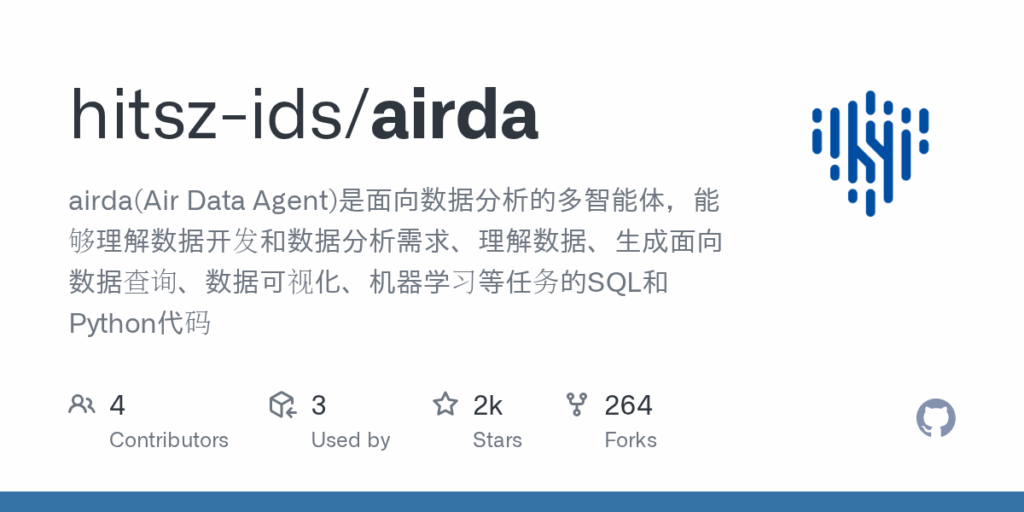airda
Basic Information
airda (Air Data Agent) is a multi-agent project focused on data analysis that helps translate data analysis requests into executable artifacts. It is designed to understand data development and analysis needs, interpret data schemas and business metrics, and generate SQL and Python code for queries, data processing and machine learning tasks. The system orchestrates multiple specialized agents for tasks such as data search, SQL generation, code generation and visualization analysis. It can connect to data sources, build a knowledge base, and produce application outputs like dashboards, data APIs and data applications. The repository provides a CLI, environment configuration, and integration points for embedding models and MongoDB to support retrieval and storage of metadata and embeddings.








